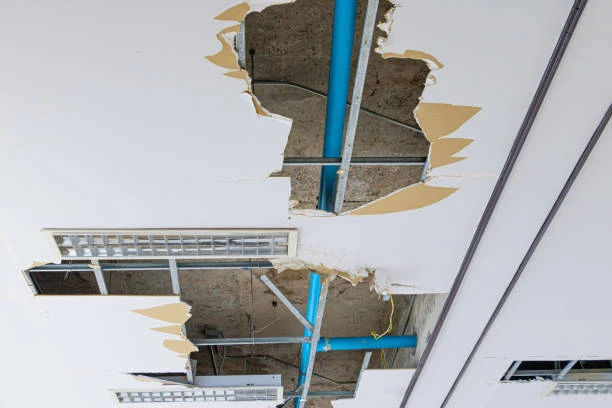Introduction
Selecting The Right Pipe for a specific job is critical to ensuring project success. Different industries require various pipe materials and specifications to meet unique challenges. Using The Right Pipe minimizes risks, reduces maintenance costs, and ensures efficiency in construction, plumbing, and industrial projects.
Plumbing Systems
Plumbing systems rely on The Right Pipe to provide safe and efficient water transportation. For residential plumbing, PVC and CPVC pipes are excellent choices because they resist corrosion, are lightweight, and are easy to install. Copper pipes, on the other hand, excel in hot water systems due to their heat tolerance and durability. Selecting The Right Pipe for plumbing ensures long-lasting, leak-free performance.
Industrial Applications
Industrial projects demand The Right Pipes to withstand high pressures and harsh environments. Steel pipes are ideal for transporting oil, gas, and chemicals due to their strength and resistance to extreme conditions. HDPE pipes provide flexibility and durability, making them perfect for heavy-duty irrigation or underground installations. Choosing The Right Pipe ensures smooth operations and reduces downtime.
Underground Infrastructure
Underground infrastructure requires The Right Pipe to handle soil pressure, water flow, and environmental stresses. HDPE and PVC pipes dominate this sector because they resist corrosion, last decades, and minimize the risk of leaks. These pipes are widely used in sewer systems, drainage, and underground water supply systems. Using The Right Pipes ensures reliability and reduces maintenance.
The Right Pipe for Irrigation Systems
Irrigation systems depend on The Right Pipe to efficiently distribute water to crops or green spaces. HDPE and PVC pipes are widely used in irrigation due to their flexibility, lightweight design, and resistance to UV damage. Choosing The Right Pipe for irrigation optimizes water usage and ensures long-term performance, especially in agricultural applications.
The Right Pipe for Gas Distribution
Gas distribution systems require The Right Pipes to ensure both safety and reliability in transporting natural gas. The choice of pipe material plays a crucial role in minimizing risks and maintaining the integrity of the distribution network. PE (polyethylene) pipes have become the preferred choice for natural gas transportation due to their unique properties, including flexibility, resistance to cracking, and the ability to endure underground installation stresses. These pipes are specifically designed to handle the pressures and environmental challenges associated with gas distribution.
PE pipes also resist corrosion, which is a common issue in underground systems, making them a more durable and long-lasting solution compared to traditional materials like metal. Their lightweight nature simplifies the installation process, reducing time and labor costs for gas companies. Furthermore, PE pipes can be fused together seamlessly, creating strong, leak-free joints that enhance the safety of the entire distribution system.
By selecting The Right Pipe for gas distribution, companies can ensure a secure and efficient supply of natural gas to both residential and industrial customers. This reliability not only safeguards public safety but also reduces maintenance costs and the risk of costly disruptions. Additionally, PE pipes support sustainability efforts as they are recyclable and require less energy to produce compared to alternatives.
Using The Right Pipes in gas distribution systems demonstrates a commitment to delivering high-quality service while meeting the stringent safety standards necessary for handling natural gas. Whether for urban or rural networks, choosing PE pipes ensures a robust and efficient infrastructure that can meet the growing demand for natural gas in a safe and cost-effective manner.

The Right Pipe for Fire Suppression Systems
Fire suppression systems require The Right Pipes to perform during emergencies. CPVC pipes excel in sprinkler systems due to their heat resistance and non-corrosive nature. Steel pipes are often used for high-pressure systems in industrial or commercial buildings. Using The Right Pipe for fire suppression guarantees safety and system reliability during critical moments.
The Right Pipe for Sustainable Construction
Sustainable construction relies on The Right Pipe to minimize environmental impact. PVC and HDPE pipes are recyclable and energy-efficient to produce, making them environmentally friendly options. By choosing The Right Pipes, contractors contribute to sustainable practices and reduce waste while ensuring durable, high-quality infrastructure.
The Right Pipe for Telecommunications
Telecommunications infrastructure depends on The Right Pipe to protect sensitive cables and wiring. PVC and HDPE conduits provide excellent protection against environmental damage, ensuring reliable performance for fiber optic and data networks. Selecting The Right Pipes for telecommunications ensures longevity and connectivity in urban and rural installations.
The Right Pipe for Extreme Conditions
Extreme conditions require The Right Pipes to withstand high stress, temperature fluctuations, and corrosive environments. Stainless steel pipes excel in chemical plants and high-temperature systems. HDPE pipes handle extreme cold and flexibility needs in remote areas. Choosing The Right Pipes ensures operational safety and durability under tough conditions.
Conclusion
Selecting The Right Pipes is essential for ensuring the success and longevity of any project. From plumbing and industrial applications to sustainable construction and telecommunications, each industry requires specific pipe materials and designs to meet its unique demands. By choosing The Right Pipes, contractors and engineers guarantee performance, safety, and cost efficiency.
FAQs
1. How do I know which is The Right Pipes for my project?
Consulting with engineers or material experts ensures you select the most suitable pipe for your specific application.
2. What is the most versatile pipe material?
PVC and HDPE pipes are highly versatile and widely used across industries due to their durability and flexibility.
3. Are there environmentally friendly options for pipes?
Yes, PVC and HDPE pipes are recyclable and energy-efficient, making them sustainable choices for many projects.
4. What pipe material works best for underground installations?
HDPE and PVC pipes are ideal for underground installations due to their corrosion resistance and durability.
5. Which pipes are best for high-pressure systems?
Steel and HDPE pipes excel in high-pressure systems, offering strength and reliability for industrial applications.